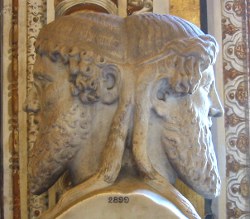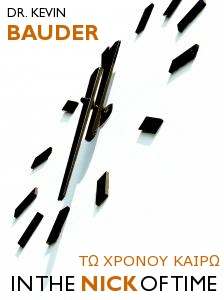Materialism, Magic, & Miracles
Body
“The materialist would simply dismiss my friend’s story saying such things are impossible. This is David Hume’s not-so-clever argument: ‘Miracles are impossible therefore miracles do not happen.’ … Human experience tells us otherwise. Inexplicable things happen.” - Imaginative Conservative
Discussion
On the Supernatural: Listening to Our Betters
Various studies over the past decade or so have found that increasing numbers of people think of themselves as “spiritual but not religious.”
Discussion
Hard Evidence for a Supernatural Book, Part 8: On a Scientific Examination of the Data
Read the series.
Since we’ve raised the issue of Messianic prophecies, there are plenty of others worth adding to the pile:
Discussion
Christians and Mythology (Part 2: Propriety)
 Read Part 1.
Read Part 1.
The ubiquity of mythology is undeniable, but to what degree should Christians interact with mythology? An answer in the third-century would most likely be in the negative if answered by the church father Tertullian, who famously asked, “What indeed has Athens to do with Jerusalem?” Tertullian didn’t have time for a “mottled Christianity,” mixed with Platonic philosophies or other heresies.
But what about an answer in the twenty-first century? What amount of involvement with pagan mythology is proper? Christians and non-Christians alike have had differing responses to this question.
Bradley Birzer writes,
To the modernist, “myth,” like religion, merely signifies a comfortable and entrenched lie. For the postmodernist, myth simply represents one story, one narrative among many; it is purely subjective, certainly signifying nothing of transcendent or any other kind of importance. For religious fundamentalists, myths also represent lies.1
Some fundamentalists may object to Birzer’s taxonomy, but I have witnessed a similar reaction by a fundamentalist leader. A few years ago, I presented this topic at a conference for educators, and at lunch, just before I held my workshop, I mentioned to an inquiring stranger2 that my workshop had to do with the benefits of mythology. He commented that it sounded like “benefits of paganism” and questioned whether there could be any benefits of paganism.3
Discussion
The Harry Potter Books
 Note: This article was originally published in April 2005 as part seven in a series about “The Christian and Fantastic Literature.”
Note: This article was originally published in April 2005 as part seven in a series about “The Christian and Fantastic Literature.”
by Kevin T. Bauder
Harry Potter has become a phenomenon. These books have provoked unbelievable enthusiasm among both children and adults. They have also provoked unbelievable controversy from some on the religious right.




Discussion